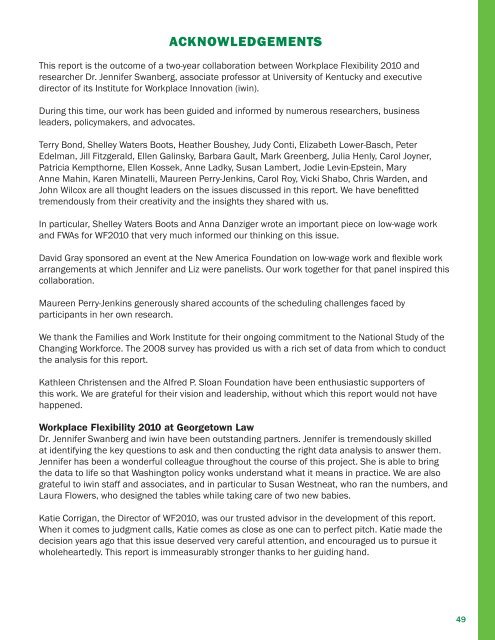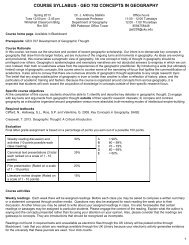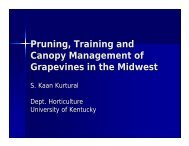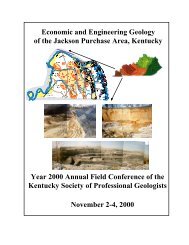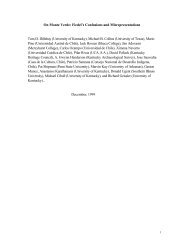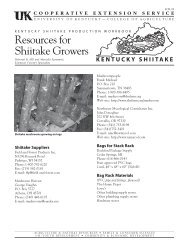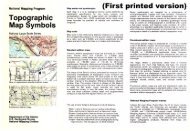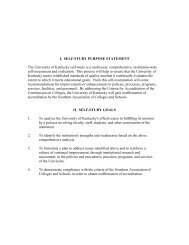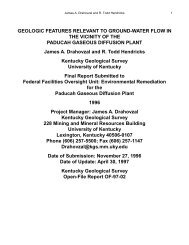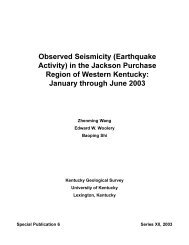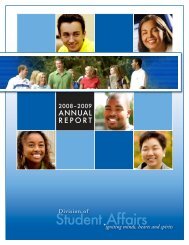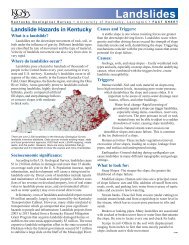Flexible Workplace Solutions for Low-Wage Hourly Workers
Flexible Workplace Solutions for Low-Wage Hourly Workers
Flexible Workplace Solutions for Low-Wage Hourly Workers
Create successful ePaper yourself
Turn your PDF publications into a flip-book with our unique Google optimized e-Paper software.
ACKNOWLEDGEMENTS<br />
This report is the outcome of a two-year collaboration between <strong>Workplace</strong> Flexibility 2010 and<br />
researcher Dr. Jennifer Swanberg, associate professor at University of Kentucky and executive<br />
director of its Institute <strong>for</strong> <strong>Workplace</strong> Innovation (iwin).<br />
During this time, our work has been guided and in<strong>for</strong>med by numerous researchers, business<br />
leaders, policymakers, and advocates.<br />
Terry Bond, Shelley Waters Boots, Heather Boushey, Judy Conti, Elizabeth <strong>Low</strong>er-Basch, Peter<br />
Edelman, Jill Fitzgerald, Ellen Galinsky, Barbara Gault, Mark Greenberg, Julia Henly, Carol Joyner,<br />
Patricia Kempthorne, Ellen Kossek, Anne Ladky, Susan Lambert, Jodie Levin-Epstein, Mary<br />
Anne Mahin, Karen Minatelli, Maureen Perry-Jenkins, Carol Roy, Vicki Shabo, Chris Warden, and<br />
John Wilcox are all thought leaders on the issues discussed in this report. We have benefi tted<br />
tremendously from their creativity and the insights they shared with us.<br />
In particular, Shelley Waters Boots and Anna Danziger wrote an important piece on low-wage work<br />
and FWAs <strong>for</strong> WF2010 that very much in<strong>for</strong>med our thinking on this issue.<br />
David Gray sponsored an event at the New America Foundation on low-wage work and fl exible work<br />
arrangements at which Jennifer and Liz were panelists. Our work together <strong>for</strong> that panel inspired this<br />
collaboration.<br />
Maureen Perry-Jenkins generously shared accounts of the scheduling challenges faced by<br />
participants in her own research.<br />
We thank the Families and Work Institute <strong>for</strong> their ongoing commitment to the National Study of the<br />
Changing Work<strong>for</strong>ce. The 2008 survey has provided us with a rich set of data from which to conduct<br />
the analysis <strong>for</strong> this report.<br />
Kathleen Christensen and the Alfred P. Sloan Foundation have been enthusiastic supporters of<br />
this work. We are grateful <strong>for</strong> their vision and leadership, without which this report would not have<br />
happened.<br />
<strong>Workplace</strong> Flexibility 2010 at Georgetown Law<br />
Dr. Jennifer Swanberg and iwin have been outstanding partners. Jennifer is tremendously skilled<br />
at identifying the key questions to ask and then conducting the right data analysis to answer them.<br />
Jennifer has been a wonderful colleague throughout the course of this project. She is able to bring<br />
the data to life so that Washington policy wonks understand what it means in practice. We are also<br />
grateful to iwin staff and associates, and in particular to Susan Westneat, who ran the numbers, and<br />
Laura Flowers, who designed the tables while taking care of two new babies.<br />
Katie Corrigan, the Director of WF2010, was our trusted advisor in the development of this report.<br />
When it comes to judgment calls, Katie comes as close as one can to perfect pitch. Katie made the<br />
decision years ago that this issue deserved very careful attention, and encouraged us to pursue it<br />
wholeheartedly. This report is immeasurably stronger thanks to her guiding hand.<br />
49


